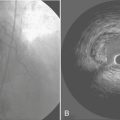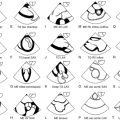Ever felt that heavy, achy sensation in your legs after a long day of sitting at your desk or standing on your feet? Or maybe you’ve noticed those pesky spider veins creeping up on your legs? It’s easy to brush off these symptoms as just a part of life. However, they could be early warning signs of vein issues that, if left unchecked, could lead to more serious problems down the road.
But fear not! In this blog, we’re diving into the world of vein health. You will know how simple lifestyle changes can make a world of difference in keeping your circulation in top-notch shape. So, let’s get to the bottom of this vein health business together!
Understanding Vein Issues
Vein issues are more common than you might think. They can really throw a wrench in your day if you’re not careful. Let’s break it down without getting too technical.
Types of Vein Issues
First off, there are varicose veins – those swollen, twisted veins that pop up on your legs like unwanted guests at a party. Then there are spider veins, those smaller, web-like veins that might not cause as much trouble but can still be a nuisance. And let’s not forget about deep vein thrombosis (DVT), a more serious condition where blood clots form deep in your veins. DVT can pose a risk of traveling to your lungs and causing a pulmonary embolism. Yikes!
If you’re experiencing any of these symptoms, it might be time to pay a visit to a vein doctor. This specialist can help diagnose your vein issues and recommend the best course of action to get you back on track.
Causes of Vein Issues
Now, why do these pesky vein issues happen in the first place? Well, blame it on a combination of factors:
– Genetics can play a big role; if your parents had varicose veins, chances are you might too
– Pregnancy can also put extra pressure on your veins, thanks to that growing baby bump
– If you spend a lot of time on your feet or sitting for hours on end, you’re increasing your risk of developing vein issues, too.
Understanding what causes vein issues is the first step in taking control of your vein health. So keep an eye out for those symptoms. Don’t hesitate to make some lifestyle changes to keep your veins healthy.
The Role of Lifestyle in Vein Health
All right, let’s talk about lifestyle because, believe it or not, the way you live your life can have a big impact on your vein health. Here’s the lowdown, minus the jargon.
Importance of Lifestyle Choices
Your daily habits can either be your ally or your worst enemy when it comes to vein health. Think about it – what you eat, how much you move, and even how you manage stress can all affect the way your veins function.
How Lifestyle Affects Vein Health
Let’s break it down. A diet low in nutrients and high in junk food? That’s not doing your veins any favors. The same goes for a sedentary lifestyle – if you’re spending most of your day sitting at a desk or lounging on the couch, your veins aren’t getting the workout they need to stay healthy.
But it’s not all doom and gloom. By making smart choices, you can give your veins the love and support they need to keep you feeling your best. Try to:
– Eat plenty of fruits and veggies
– Find healthy ways to de-stress
So, let’s roll up our sleeves and make some changes for the better, shall we?
Maintaining Healthy Body Weight
Alright, let’s talk about the scale – not everyone’s favorite topic, but an important one when it comes to vein health. Here’s the scoop on why keeping your weight in check is key for your veins.
Effects of Obesity on Vein Health
Carrying around extra pounds isn’t just tough on your joints. It puts added pressure on your veins, too. When you’re overweight, your veins have to work harder to pump blood back to your heart. Obesity can lead to problems like varicose veins and swelling. Not fun.
Strategies for Weight Management
But here’s the good news: shedding those extra pounds can do wonders for your vein health. And you don’t have to go on some crazy crash diet to make it happen. Start by making small, sustainable changes. Try to:
– Swap out sugary drinks for water
– Fill up on veggies instead of chips
– Squeeze in some extra steps whenever you can
So let’s lace up those sneakers and get moving – your veins will thank you for it!
Avoiding Tight Clothing
Let’s talk about wardrobe choices because what you wear can actually affect your vein health. Here’s why you might want to think twice before squeezing into those super-tight jeans.
Impact of Tight Clothing on Circulation
When you wear tight clothes, especially around your waist and legs, you’re basically putting a squeeze on your veins. This can impede blood flow and make it harder for your veins to do their job, leading to discomfort and even vein issues like varicose veins.
Choosing Clothing That Promotes Circulation
But don’t worry; you don’t have to ditch your favorite skinny jeans altogether. Just opt for looser-fitting clothes that give your veins some breathing room. Look for fabrics with a bit of stretch and avoid anything that feels too constricting. Your veins will thank you for it, and you’ll feel more comfortable, too.
Quitting Smoking
Let’s talk about kicking that smoking habit. Because it’s not just bad for your lungs, it’s also bad news for your veins. Here’s why stubbing out those cigarettes is one of the best things you can do for your vein health.
Effects of Smoking on Circulation
You’ve probably heard that smoking is bad for your heart and lungs, but did you know it’s also bad for your blood vessels? Yup, lighting up can damage your blood vessels and make it harder for blood to flow through your body. This puts extra strain on your veins and increases your risk of developing vein issues like varicose veins and blood clots.
Resources for Smoking Cessation
But here’s the good news: quitting smoking can do wonders for your vein health – and your overall health, too. There are tons of resources out there to help you quit, from support groups to nicotine replacement therapy. Find what works for you, and don’t be afraid to ask for help along the way. So take a deep breath, toss those cigarettes in the trash, and start your journey to a smoke-free life today.
Elevating Legs
Alright, let’s talk about giving your legs a breather – because sometimes they just need a little time to chill out. Here’s why propping up your feet can be a game-changer for your vein health.
Why Leg Elevation Matters
When you’ve been on your feet all day, gravity can do a number on your veins, making it harder for blood to make its way back up to your heart. But when you elevate your legs, you’re basically giving your veins a break from the uphill battle. It allows blood to flow more freely and gives your veins a chance to relax and recharge.
How to Elevate Your Legs
So how do you do it? It’s simple – just find a comfy spot to sit or lie down and prop your legs up so they’re above heart level. You can use pillows to support your legs and make yourself extra cozy. Aim for about 15-20 minutes several times a day to give your veins a chance to unwind.
Conclusion
We’ve covered everything from ditching tight clothes to kicking that smoking habit to keep your veins healthy. Remember, it’s the little everyday choices that add up to big impacts on your circulation. By making simple lifestyle changes, you’re investing in your well-being and quality of life. So go ahead, take those stairs, and don’t forget to give your legs a little love with some elevation now and then. Your veins will thank you for it!






